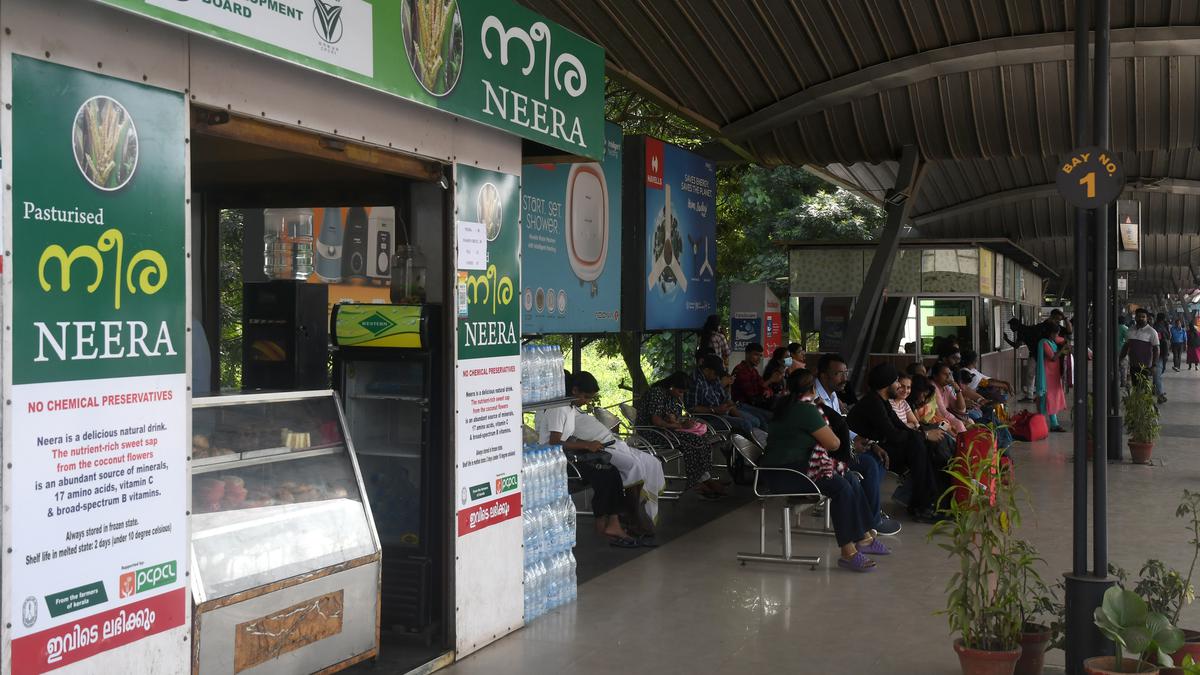
The failed promise and lost potential of Kerala’s health drink
The Hindu
Kerala's Karappuram Coconut Producer Company's Neera Plant failed to revolutionise the natural health drinks market, leaving farmers and entrepreneurs in debt.
By the side of the ill-maintained Pandarapadam-Keloth road near Ayyappanchery in Kerala’s coastal Alappuzha district stands a semi-derelict building with its compound overrun with weeds. A Maruti Omni van with flat tyres and a red-lettered sticker on its windscreen that reads “Karappuram Nalikera Ulpadhaka (Coconut Producer) Company Limited” is left to rust on the porch. On the wall next to the front door of the structure is a granite engraved inauguration plaque of the company’s ‘Neera Plant’ dated July 10, 2015. The names of the dignitaries who attended the launch, including that of the chief guest, the then Kerala Home Minister Ramesh Chennithala, written in bold letters, have gathered dust. A musty smell hangs within the building.
“These spaces were once filled with busy workers and representatives of the company trying to meet production targets,” recalls T.S. Viswan, one of the directors of the Karappuram Coconut Producer Company.
A decade ago, Viswan, who is a retired agricultural officer, two multi-generational farmers, and seven others, who ventured into agriculture post-retirement from their government jobs, joined forces to establish a coconut oil processing plant. However, it never went beyond an idea. The Coconut Development Board (CDB), under the Ministry of Agriculture, presented to them a “great opportunity” to tap the vast potential of Neera, a nutrient-rich sap from the coconut palm’s inflorescence.
The company set up its Neera processing plant using the initial capital of ₹5 lakh raised from within the group, a ₹1.5-crore loan taken from the Kerala Financial Corporation (KFC) at 14.5% interest, and another ₹80 lakh mobilised from coconut farmers as shares. After a positive beginning, the average daily Neera production touched 600 litres within months. The company was selling the non-alcoholic, mineral-rich, and nutritious health drink in polyethylene terephthalate (PET) bottles of different sizes through over two dozen outlets in the region.
“It all started after we tasted Neera during a visit to the CDB office. In one word, it was luscious. After attending a few sessions on Neera, we were gripped with entrepreneurial spirit. Officials promised us a loan to establish the processing unit without collateral security. All these led us to jump into the Neera business without a second thought,” remembers Viswan.
The good days did not last long as unsold bottled Neera began to return to the mother plant. Neera has a short shelf-life as it is highly susceptible to fermentation, transforming into toddy within an hour of extraction. When processed and bottled by adding preservatives, its shelf-life will be extended by up to a few weeks but at the cost of its original taste and quality.
“When (production) quantity increased, quality was affected. Our lack of experience in running a business also played a part in the failure,” says Viswan, sitting along with two other directors K. Kailasan and V.C. Panicker.











